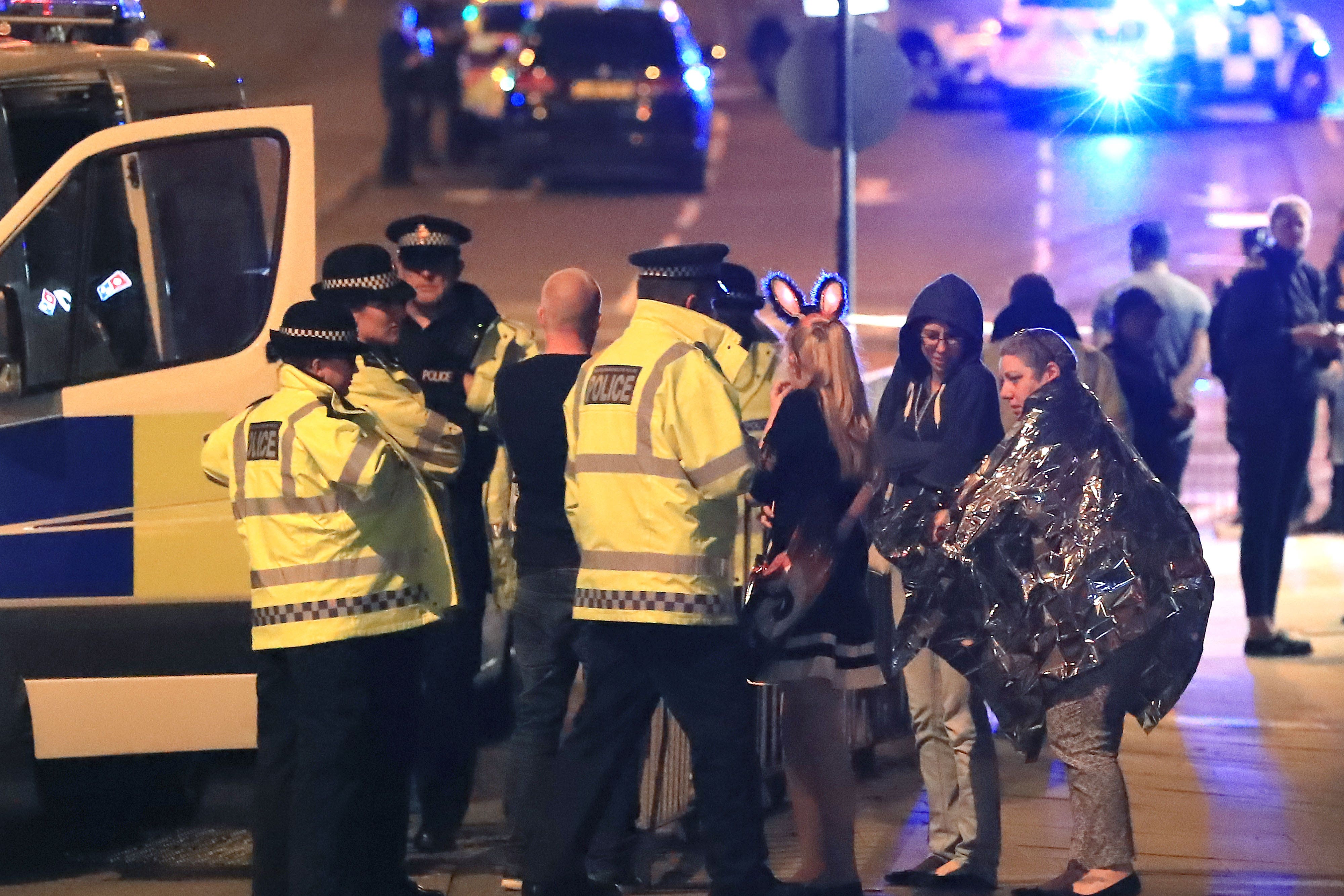More training for ambulance staff following Manchester attack ‘could take years’
The response by the emergency services to the bombing, which killed 22 people on May 22 2017, was criticised following an inquiry.

Your support helps us to tell the story
From reproductive rights to climate change to Big Tech, The Independent is on the ground when the story is developing. Whether it's investigating the financials of Elon Musk's pro-Trump PAC or producing our latest documentary, 'The A Word', which shines a light on the American women fighting for reproductive rights, we know how important it is to parse out the facts from the messaging.
At such a critical moment in US history, we need reporters on the ground. Your donation allows us to keep sending journalists to speak to both sides of the story.
The Independent is trusted by Americans across the entire political spectrum. And unlike many other quality news outlets, we choose not to lock Americans out of our reporting and analysis with paywalls. We believe quality journalism should be available to everyone, paid for by those who can afford it.
Your support makes all the difference.A recommendation for more training for ambulance staff, made following a public inquiry into the Manchester Arena bombing, is “a big challenge”, a hearing has been told.
The response by the emergency services to the attack, which killed 22 people on May 22 2017, was criticised following the inquiry, which heard only three paramedics entered the City Room, where the blast happened.
At a hearing on Monday to monitor progress of recommendations made by chairman Sir John Saunders, the inquiry was told plans to involve non-specialist ambulance personnel in multi-agency training exercises could take years to achieve.
Gerard Blezard, director of operations for North West Ambulance Service, said 6,000 staff will have to undertake the training, which would have a significant cost and infrastructure availability the organisation does not yet have.
I don’t think it’s something we can deliver in the immediate future. I think we’re talking years before we can get to this position
Sir John asked: “Is it going to be, in your view, impossible to do?”
Mr Blezard said: “I’d say it’s a big challenge for us. I don’t think it’s something we can deliver in the immediate future. I think we’re talking years before we can get to this position.”
He also said a recommendation to increase the number of national interagency liaison officers has not yet been possible.
He said: “We’re willing to do it, we just don’t have the capacity to get people through the courses.”
Mr Blezard said he is satisfied the service is making real changes, which could save lives, but said some of the changes are ongoing.
The hearing, at Manchester Hall, was told a training exercise held last November identified a number of failings by North West Fire Control, with similarities to what had gone wrong after Salman Abedi detonated his bomb at the end of an Ariana Grande concert.
There’s still a lot of work to do and I wouldn’t want to lose momentum
A debrief after the exercise identified a number of problems with communication, the inquiry heard.
Sarah-Jane Wilson, head of the service, was asked what degree of confidence she has that if a major incident happens those mistakes will have been addressed.
She said: “I’m very confident because I know these have been addressed and I know we have subsequently tested them in other exercises since then.”
She told the inquiry she hopes to continue to monitor the progress made.
This attack happened on our patch. It’s never not going to be in the DNA of GMP. It’s important to us and that’s one of the reasons why this will carry on
She added: “There’s still a lot of work to do and I wouldn’t want to lose momentum.”
Deputy chief constable of Greater Manchester Police, Terry Woods, said a structure put in place by the force to learn lessons after the attack will remain.
“It will be an assurance to us and I hope the public that if anything happens again we will be far better prepared,” he said.
He added: “This attack happened on our patch. It’s never not going to be in the DNA of GMP. It’s important to us and that’s one of the reasons why this will carry on.”
Asked if police in other areas of the country should be doing more, he said: “As it stands, at present, yes.
“I do think other forces should be doing more.”
The inquiry will continue to hear evidence on the recommendations on Tuesday.